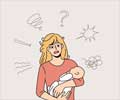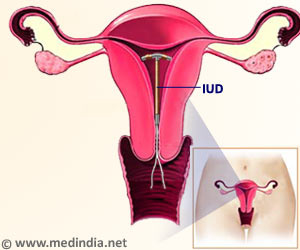A new study explored the relationship between the history of infertility and the experience of menopausal symptoms, highlighting the importance of mental health screening.

Fertility, early menopause and pregnancy outcomes of patients with Takayasu's arteritis
Go to source).
‘Women with an infertility history need to undergo mental health screening during menopause, as they are more likely to experience mood disturbances.#Menopause #MentalHealth #Infertility’





Still, there is some indication that women with a history of infertility may experience earlier menopause and greater severity of some menopause symptoms. In addition, infertility is an equivalent life stressor to a cancer diagnosis, and experiencing stressful life events is associated with reports of more menopause symptoms.Infertility: Risk Factor for Some Menopause Symptoms
The goal of a new study involving nearly 700 midlife women was to specifically evaluate the effect of a lifetime history of infertility on the experience of menopause symptoms in midlife. Of the study participants, roughly one-third (36.6%) reported ever experiencing infertility.This is higher than the national average of infertility overall. Based on the findings, researchers in this new study concluded that women with a history of infertility had greater odds of experiencing sleep problems, depressive mood, and irritability. No association was documented between infertility and other common menopause symptoms such as hot flashes, vaginal dryness, or anxiety (2✔ ✔Trusted Source
Exploring the relationship between history of infertility and the experience of menopausal symptoms
Go to source).
This is not the first time that infertility has been associated with depression. Prior studies have shown that 30% to 60% of women undergoing evaluation and treatment of infertility screen positive for depression.
This is the first study, however, to show that a prior history of infertility is associated with depressive symptoms in midlife and could be considered a flag for increased screening for depressive symptoms in midlife (3✔ ✔Trusted Source
Women infertility and common mental disorders: A cross-sectional study from North India
Go to source).
It also shows an association between a history of infertility and increased odds of depression and sleep symptoms in midlife. Women in midlife with a history of infertility may benefit from increased screening for depression.
Advertisement
- Fertility, early menopause and pregnancy outcomes of patients with Takayasu’s arteritis - (https://www.ejog.org/article/S0301-2115(23)00030-1/fulltext)
- Exploring the relationship between history of infertility and the experience of menopausal symptoms - (https://journals.lww.com/menopausejournal/Abstract/9900/Exploring_the_relationship_between_history_of.220.aspx)
- Women infertility and common mental disorders: A cross-sectional study from North India - (https://journals.plos.org/plosone/article?id=10.1371/journal.pone.0280054)
Source-Eurekalert















